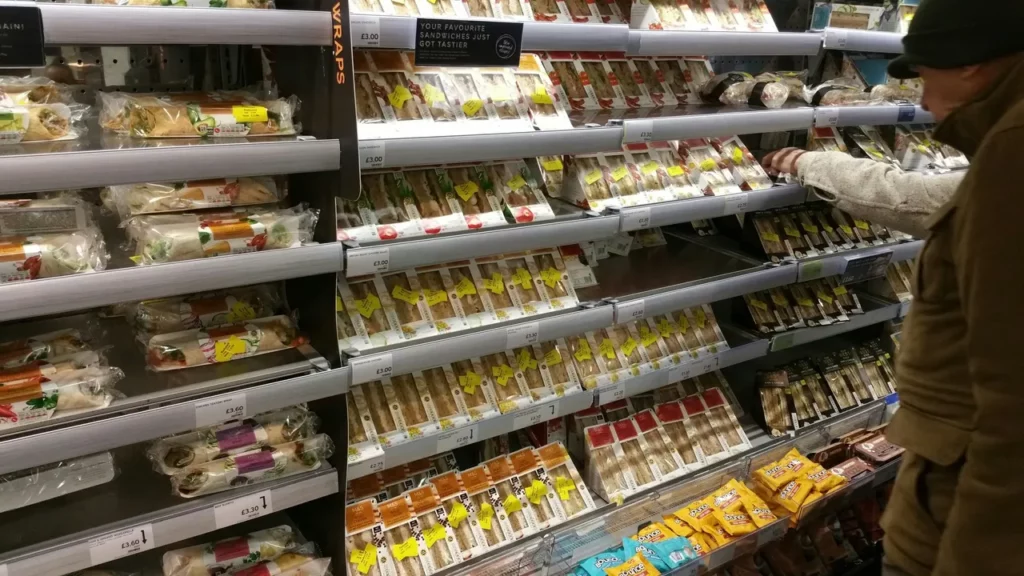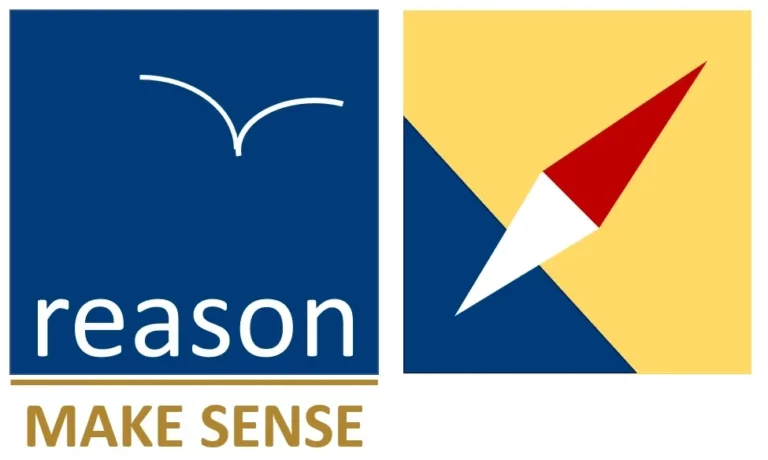Resources mismanagement: an integral part of corporate strategy?
Illustration with the deconstruction of two retailers’ food waste stances.

When it comes to business strategy and its operationalisation, one needs to be aware that what doesn’t make sense at all in the eyes of shareholders, society or the population/customers can be intentionally and knowingly implemented by the business’s executives/owners. And this post shows that it could go even further than just being a matter of ‘making more money’.
For instance, people or customers will be very surprised, if not shocked, if owners and investors decide to shut down a profitable business/factory. What?! Yes. If shutting down this factory allows them to maximise the output capacity and productivity of remaining factories, hence their profits and higher/quicker return on investment, especially if they operate in a relatively captive market, this is a decision that can take place.
As a second example, key executives/business owners can decide to re-route orders from one factory based in country A to another one in country B. This often leads, in what is euphemistically called innovative tax/accountancy, to creating financial losses in factory A, which can then justify restructuring it, like cutting jobs, implementing financial austerity, cancellation of future investments, wooing local authorities to lowering oppressive taxes, and eventually even shutting down the business unit. How to fire yourselves a bullet in the foot – quick guide.
In previous blogs, I wrote about how to evaluate a business’s outcome performance as well as about ownership rights and the inherent three powers that go with them: Usus, Fructus and Abusus. The two examples above illustrate the Abusus, as what is not forbidden, is in general allowed in liberal free-market economies.
In order to understand how waste and resource mismanagement become an integral and intentional part of some corporate strategies, one needs to combine this with both the rules of the so-called “Free Market Economy” and its supply-and-demand-optimum-equilibrium axiom.
The free market economy is an economic system based on supply and demand with (little or) no government control. This dominant model supported by most of the Western economies and Economy Nobels tells us that, for instance, two football teams can play perfectly well without a referee.
A key element for our later analysis is also that in free-market economies, there are no coerced transactions or conditions on transactions. So, if football Team A wants in the middle of the game to switch to rugby rules, Team B can accept or refuse. But, what happens if Team B refuses? For simplicity, we assume there is no other football Team C around that would accept terms refused by Team B.
This is where comes the rule of “Supply and Demand”: if Team A can’t get what they want from Team B, they need to compromise – to negotiate. Team B may want to stick to playing football with football rules arguing otherwise it’s not football anymore, while Team A might pretend innovation drives progress in society and team B should be open to change.
Standard’s economics paradigm evacuates initial conditions and pre-existing sets of rules held by both actors of the Supply and Demand sides when beginning the game and only affirms that an optimum equilibrium will happen between them, nevertheless.
If we apply this now to retail and the two pictures shared in this post, we see the Supply (the retailer) supplies pastries or sandwiches, and the Demand (you, the customer) is looking to buy. It’s lunchtime and we need to eat something.
The first picture shows dozens of pastries thrown away in a bag by staff, in the late evening. The second picture shows several shelves one next to another full of discounted sandwiches less than an hour before evening closure.

In both cases, we have the Supply putting food into the process of the free market economy for the Demand to buy it. Sales are meant to happen in the process of Marketing Science and retailers’ stance, according to which their utmost goal is to satisfy customers. Obviously, they don’t as lots of food ends up unsold and gets wasted or destroyed.
What retailers try to create with these discounts is an inducement to lead customers to buy in the evening what they needed in the morning or for lunch. This seems driven by some decision-makers’ expertise believing that people enjoy the most a croissant before dinner, for instance.
What we witness here seems a premeditated waste and a distortion of the free market economy and rule of Supply and Demand equilibrium: these retailers design, plan, validate and implement these processes meticulously and continuously, day after day, over significant periods of time counting in years. They show customers that they do what they want with what is theirs (Abusus). They are primarily not driven by customers’ satisfaction or waste avoidance – after all, you pay for it through everything you buy in the store, soon or later. If you don’t buy croissants or sandwiches at the price they dictate for breakfast or lunch, you won’t get it and you won’t eat.
Statistics about wasted food in the evening should lead retailers, according to economy standards and management best practices, to lower their prices over the next days and weeks until the equilibrium of the market happens between them (Supply) and customers (Demand). They don’t: they prefer wasting and discounting at the very end of the day what many needed during the day and show the market that they make the rules.
The optimum equilibrium therefore guaranteed by standard economics doesn’t happen spontaneously: the market needs to be regulated by a referee making consistent rules that ensure, by enforcing them, that Supply works in an efficient way for themselves and the common good free-market economies are meant to bring, and doesn’t abuse the Demand. And vice versa.
While identifying a use case and justification for such retail strategies is rather challenging (despite ‘almost wasted food’ donations to charities and other community groups), the whole paradox lies in that the same retailers close stores, complaining that sales fall or so and that it is all Amazon-like’s greatest fault, actually.
Food Wate Estimates in Context
According to the Department for Environment, Food and Rural Affairs, the UK currently wastes 10.2m tonnes of food a year, costing around £15bn. This is what is estimated and roughly assessed. It is much more in reality.
In comparison and to add some context, £15bn is the amount of Housing Benefit paid per year (disability living allowance is c. £11bn). It is 10% of the annual budget of the NHS. The total police budget in 2018/19 is c. £12.3 bn. In 2015–16, TfL had a budget of £11.5 bn. This is also c. 40% of schools’ budget for pupils aged 5-16 in England for 2017/18 (c. £39 billion). The 2012 London Olympic games’ total cost was less than £9bn.
At times when we can hear about the alleged dramatic impact on the environment of cattle’s CO2 winds, maybe would it be good to trump some common sense and responsibility in retail’s operational strategy.
At reason, we make sense for shareholders and top executives with ad hoc Business Excellence, by ensuring a genuine free market Supply and Demand balanced and efficient mechanisms articulation, all supported by a proper marketing strategy.
If you are concerned by waste and inefficiency across your business, looking for Business Excellence or wish to open more factories and stores to satisfy delighted customers rushing after your brand and products, do get in touch now.
Thank you for your time and interest.
Please join us by subscribing to our Blog. Posts are occasional and written as thoughts come.
Please leave your comment at the bottom of this page to continue the reflection on this post.
If you are looking for a reliable, independent professional consultancy to assist you in getting through the mist and the storm and cutting through an often artificial complexity, please do get in touch with us for an informal discussion, or write to contact @ reasonmakesense .com (please remove spaces)
Get in touch to discuss freely; reason will Make Sense, with you and for you.
A few words about Reason

reason supports Shareholders, Board, C-Suite Executives and Senior Management Team in achieving Business Excellence and Sustainability through our Praxis unique approach.
We Make Sense with you and for you.
We work and think with integrity, are independent and fed by a very broad spectrum of robust information sources, which is certainly one of the rarest and best qualities a consultancy can offer demanding decision-makers willing to overcome challenges and reach impactful, tangible and measurable Business Excellence.
We follow reason, facts, best practices, common sense and proper scientific approaches. This is our definition of professionalism. It brings reliability, confidence and peace of mind.
Please check our offering, subscribe directly on this page, write to contact @ reasonmakesense .com (without the spaces) or click on our logo below to get redirected to our contact form.
Thank you for reading!
Reason Praxis | Make Sense
Excellence & Sustainability
www.reasonmakesense.com
There is nothing wrong in doing things right, first time.
Share this post








